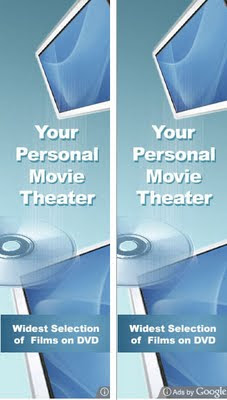Posted by Eric Schmidt, Chairman and CEO of Google, and Lowell McAdam, President and CEO of Verizon Wireless(Cross-posted on the Verizon PolicyBlog.)Verizon and Google might seem unlikely bedfellows in the current debate around network neutrality, or an open Internet. And while it's true we do disagree quite strongly about certain aspects of government policy in this area -- such as whether mobile networks should even be part of the discussion -- there are many issues on which we agree. For starters we both think it's essential that the Internet remains an unrestricted and open platform -- where people can access any content (so long as it's legal), as well as the services and applications of their choice.
There are two key factors driving innovation on the web today. First is the programming language of the Internet, which was designed over forty years ago by engineers who wanted the freedom to communicate from any computer, anywhere in the world. It enables Macs to talk to PCs, Blackberry Storms to iPhones, the newest computers to the oldest hardware on the planet across any kind of network -- cable, DSL, fiber, mobile, WiFi or even dial up.
Second, private investment is dramatically increasing broadband capacity and the intelligence of networks, creating the infrastructure to support ever more sophisticated applications.
As a result, however or wherever you access the Internet the people you want to connect with can receive your message. There is no central authority that can step in and prevent you from talking to someone else, or that imposes rules prescribing what services should be available.
Transformative is an over-used word, especially in the tech sector. But the Internet has genuinely changed the world. Consumers of all stripes can decide which services they want to use and the companies they trust to provide them. In addition, if you're an entrepreneur with a big idea, you can launch your service online and instantly connect to an audience of billions. You don't need advance permission to use the network. At the same time, network providers are free to develop new applications, either on their own or in collaboration with others.
This kind of "innovation without permission" has changed the way we do business forever, fueling unprecedented collaboration, creativity and opportunity. And because America has been at the forefront of most of these changes, we have disproportionately benefited in terms of economic growth and job creation.
So, in conjunction with the Federal Communications Commission's national plan to bring broadband to all Americans, we understand its decision to start a debate about how best to protect and promote the openness of the Internet. FCC Chairman Julius Genachowski has promised a thoughtful, transparent decision-making process, and we look forward to taking part in the analysis and discussion that is to follow. We believe this kind of process can work, because as the two of us have debated these issues we have found a number of basic concepts to agree on.
First, it's obvious that users should continue to have the final say about their web experience, from the networks and software they use, to the hardware they plug in to the Internet and the services they access online. The Internet revolution has been people powered from the very beginning, and should remain so. The minute that anyone, whether from government or the private sector, starts to control how people use the Internet, it is the beginning of the end of the Net as we know it.
Second, advanced and open networks are essential to the future development of the Web. Policies that continue to provide incentives for investment and innovation are a vital part of the debate we are now beginning.
Third, the FCC's existing wireline broadband principles make clear that users are in charge of all aspects of their Internet experience -- from access to apps and content. So we think it makes sense for the Commission to establish that these existing principles are enforceable, and implement them on a case-by-case basis.
Fourth, we're in wild agreement that in this rapidly changing Internet ecosystem, flexibility in government policy is key. Policymakers sometimes fall prey to the temptation to write overly detailed rules, attempting to predict every possible scenario and address every possible concern. This can have unintended consequences.
Fifth, broadband network providers should have the flexibility to manage their networks to deal with issues like traffic congestion, spam, "malware" and denial of service attacks, as well as other threats that may emerge in the future -- so long as they do it reasonably, consistent with their customers' preferences, and don't unreasonably discriminate in ways that either harm users or are anti-competitive. They should also be free to offer managed network services, such as IP television.
Finally, transparency is a must. Chairman Genachowski has proposed adding this principle to the FCC's guidelines, and we both support this step. All providers of broadband access, services and applications should provide their customers with clear information about their offerings.
Doubtless, there will be disagreements along the way. While Verizon supports openness across its networks, it believes that there is no evidence of a problem today -- especially for wireless -- and no basis for new rules and that regulation in the US could have a detrimental effect globally. While Google supports light touch regulation, it believes that safeguards are needed to combat the incentives for carriers to pick winners and losers online.
Both of our businesses rely on each other. So we believe it's appropriate to discuss how we ensure that consumers can get the information, products, and services they want online, encourage investment in advanced networks and ensure the openness of the web around the world. We're ready to engage in this important policy discussion.




